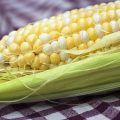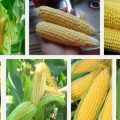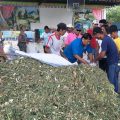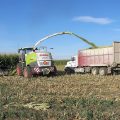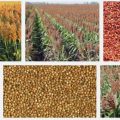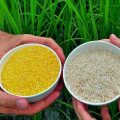The successful distribution of the Bacillus thuringiensis (Bt) corn has beefed up Philippines’ corn production leading to a potential export of 50,000 to 100,000 metric tons (MT) of grains possibly to South Korea and Malaysia.
The country has so far exported 467 MT of corn silage this year to South Korea.
Ploughshares Inc. exported to South Korea corn silage initially at 24 MT of in April. It then shipped out 69 MT in June, 320 MT in July, and 38 MT in August.
But the Philippines may further export not only corn silage but corn grains too.
“I see corn export opportunity growing especially if we’re able to develop bulk handling. We may even be able to export grain,” said Ploughshares Inc. President Butch Umengan.
The country used to import one million metric tons (MT) of corn.
“We used to import corn and corn substitutes at one million tons yearly. But GM (genetically modified) corn is enabling us to export,” said Umengan.
The South Korean feed market has started importing Philippine corn silage because of its quality.
“Bt corn is clean, and its grains are bigger. So feed suppliers in Korea want it,” said Umengan.
Bt corn’s cob brims with full kernel. Its stalks and leaves are free from holes manifesting insect infestation in conventional corn.
The agriculture/” title=”View all articles about Department of Agriculture here”>Department of Agriculture (DA) reported that the Philippines may already be all set to export corn grains.
DA declared the corn export is part of government’s program.
“There is a recommendation with the NFA (National Food Authority) Council for DA to export 50,000 to 100,000 tons of corn,” according to DA. “Exporting corn is really our strategy because if we have a surplus, prices may go down, and it will be our farmers that will suffer if prices will drop.”
Since Bt corn was released in 2002, the country sustained its production growth.
According to the data of the International Service for the Acquisition of Agri-biotech Applications or ISAAA, 750,000 hectares was planted to biotechlogy corn in 2012. This is 58 percent of the total land area planted to yellow corn.
“The GM technology is not only benefiting consumers and farmers. It’s benefiting the whole country towards agricultural modernization and competitiveness,” said Umengan. “We now have very little or zero importation because of increased competitiveness. A lot is due to biotechnology seeds. That pulled up our production.”
By the end of the year, production is targeted to reach to 8.1 million to as much as 8.4 million MT.
Projected yellow corn production is placed at yellow is 5.7 million MT, and white corn 2.4 to 2.7 million MT. This is a new high from the 7. 41 million MT recorded in 2012.
Since South Korea has limited land for grazing its cattle, livestock raisers prefer to import corn silage which is composed of semi-dried corn stalks, leaves, and grains forming 10 percent of the volume. With silage, its cattle is still able to feed not only on grains but on leaves and stalks of corn too.
“There isn’t much grazing area, so they’re heavily dependent on silage,” Umengan said.
Bt corn has substantially raised farmers’ income as yield could double to six MT per hectare from just three MT per hectare for conventional corn.
However, yield of GM corn may reach to nine to 10 MT per hectare.
South Korea is currently importing much of their corn silage from Vietnam—by up to 80 percent.
Total South Korean cow population is five million heads. Feed requirement is three million MT per month of which 80 percent must be corn silage.
“Capturing just 20 percent of the South Korean market is enough for us. We also have to balance between our export and our need to supply the local market adequately,” said Umengan.
Fortunately, corn farmers earn higher from corn silage production. While net income from grains may reach around P25,000 to P35,000 per hectare, net income from silage may reach to P60,000 per hectare.
With corn silage, the cost for farrowing, shelling, drying, and hauling is omitted. There is less or zero need for labor for harvesting.
###
For questions or interview requests, please text or call 0921-338-3816, 0916-266-6604.
